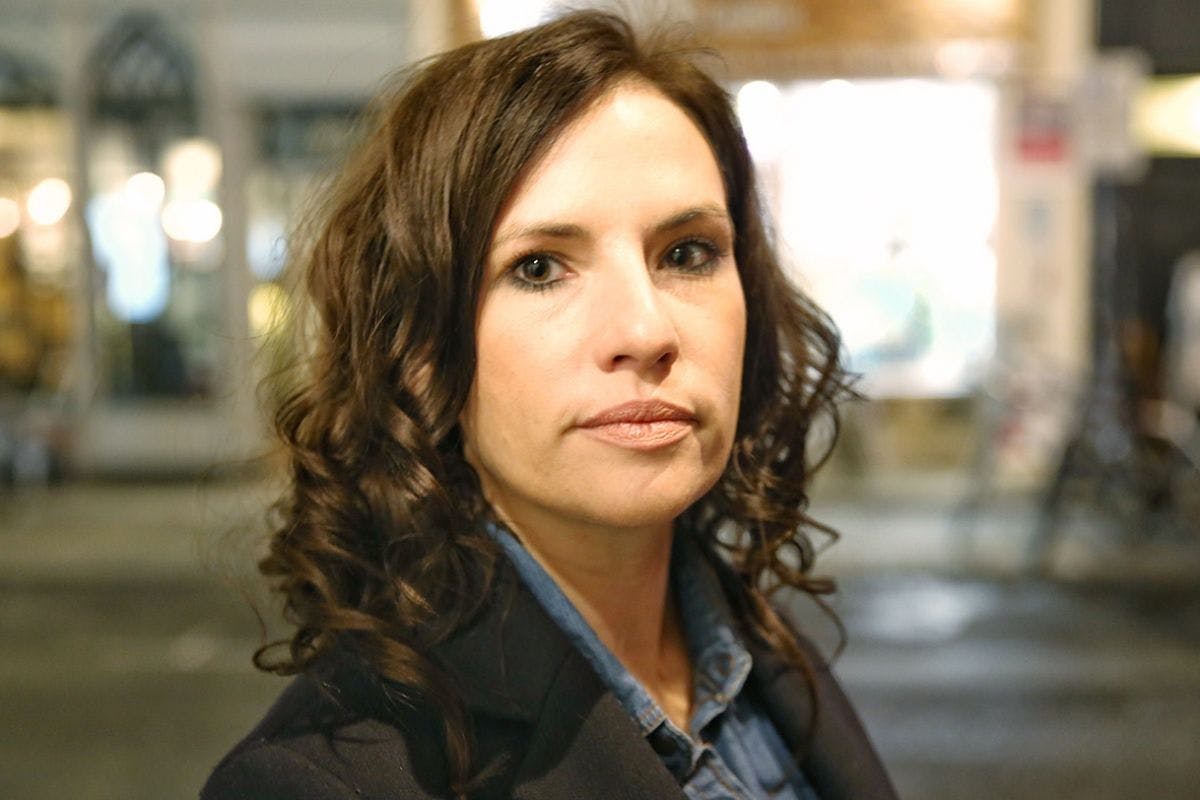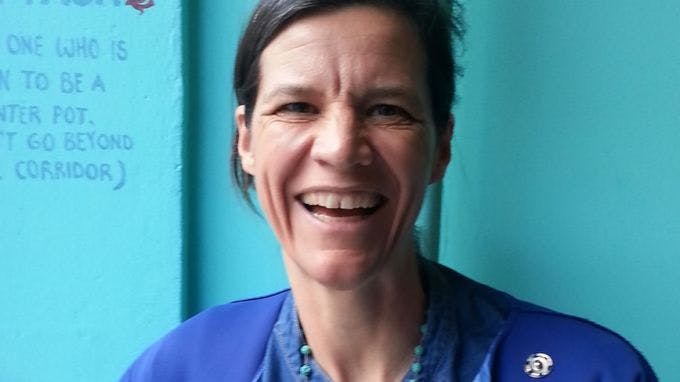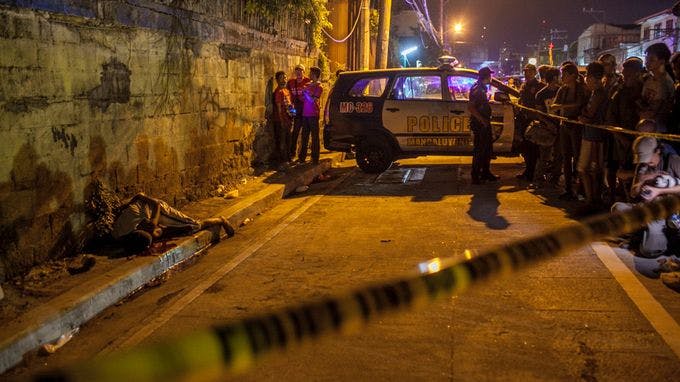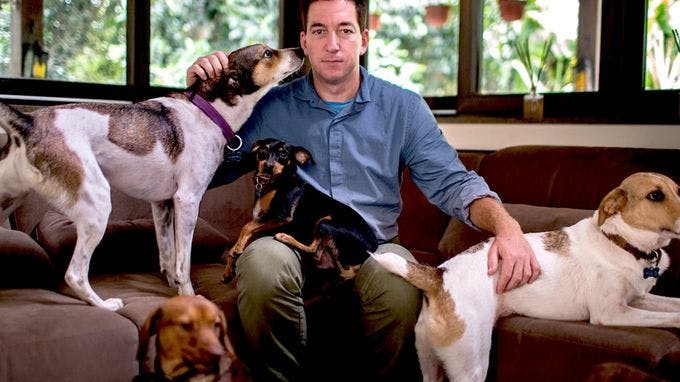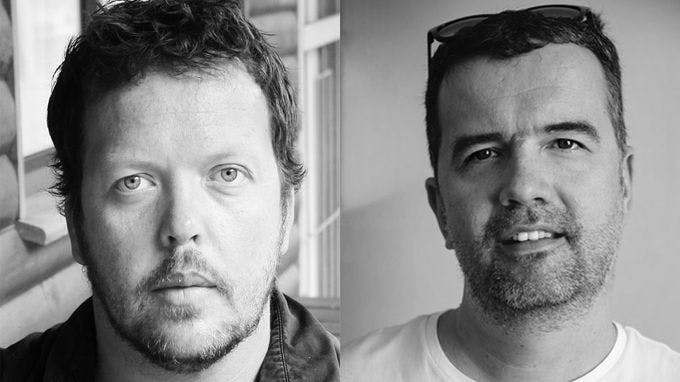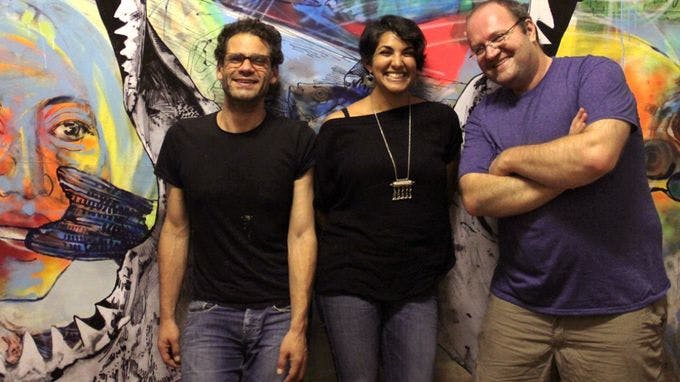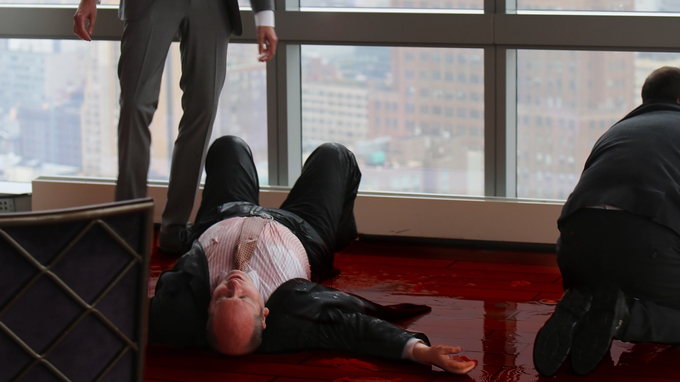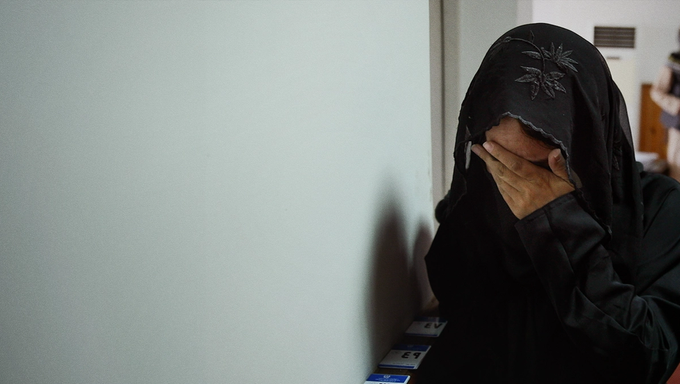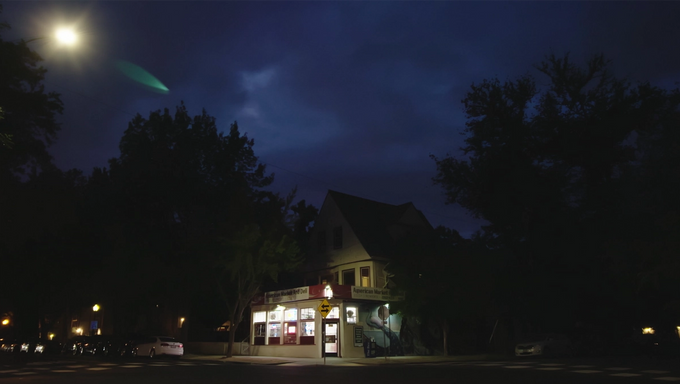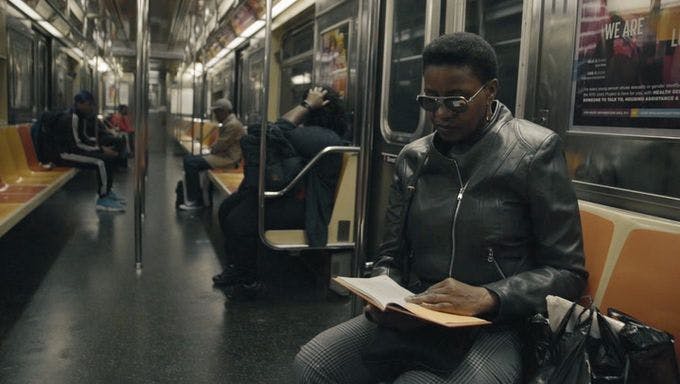Filmmaker and journalist Theopi Skarlatos came to her reporting on the Greek economic crisis from a unique angle — as both an insider and outsider. Though Greek by heritage, she grew up in the United Kingdom, only visiting her father’s home country for vacations and short stays. So when stories surrounding the country’s debilitating austerity measures started bringing her back, Skarlatos was spending more time in Greece than ever before — and just as society seemed to be falling apart at the seams.
In the following interview, conducted during the final stages of editing her four-part series for Field of Vision, #ThisIsACoup, Skarlatos talks about the origins of her partnership with Paul Mason, who produced and narrated the films. (A separate interview with Mason, now economics editor for England’s Channel 4 News, will accompany the third episode of the series.)
Skarlatos also discusses what it was like to document the rise of Syriza, and how episodic storytelling worked to reflect the cycles of elation and disappointment that defined the Greek public’s response to the turbulent political landscape.
Let’s first talk about your relationship with Greece. How much time had you spent there prior to these recent years of reporting?
Skarlatos: I’m half Greek — my father is Greek. We would go there twice or more a year. Then three or four years ago, after the movement in the squares in 2011, I started going back. And actually that’s when I met Paul Mason — in the middle of a riot. I was collecting information for a radio piece I was working on, and he was working for BBC TV. I introduced myself and we stayed in touch, and then went on to do a couple of different short films for BBC Newsnight on the refugee issues in Greece, and then we covered the Cyprus financial crisis together. So that is how it all started.
And then I came up with the idea of making a film that I couldn’t stop thinking about, which was Love in the Time of Crisis. Paul deals primarily in the economic situation, whereas I don’t — I’m a freelance journalist and I cover things very broadly, so I was more drawn to the human element of the crisis and how it was ruining relationships, both in terms of romantic relationships and friendships. Paul executive produced, and off the back of that film came this film.
How did your partnership with Paul take shape for the making of this series?
Skarlatos: Now he has a full-time job for Channel 4, which means he couldn’t be there 24/7. Whereas because I’m freelance, I could be. He’d been given a little bit of funding by the unions [in Greece] to do a short 15-minute film based on the election and this new radical left-wing party that was about to come to power. I agreed to do it and spent three weeks filming during the run-up to the elections.
On the night [Syriza] won the election, we were in this random bar behind all of the celebrations, and we were in total shock. It was the first left-wing party to take power since I don’t know when. We just sat there and thought, “We can’t let this go, we have to continue filming, and we have to tell the story of what happens.”
Since you were responding spontaneously to events, rather than making a film you’d been planning and budgeting for a while, how did you make it work?
Skarlatos:: Well, we didn’t have funding in the beginning. We kind of put the word out that we might be doing this. We spoke to the mainstream media, but they were a bit funny about the fact that the amazing footage and access we had at the beginning had been funded by the union, so they didn’t want to go near it. So then we thought, fuck it, we’ll just raise the money ourselves crowd-funding. We raised more than 40,000 pounds and that got us started.
Was the new government amenable in terms of access?
Skarlatos: By this point I’d made a lot of contacts because I shot the short film during the run-up to the election. I’d been shoulder to shoulder with these people, especially the young Syriza crowd, these campaigners who were trying to spread the word about the party and how it could really change things for the better. These people were totally accessible, and that was their whole ideology — these people are just like you and me. But there is also a huge element of trust, and that is something I had built up over an entire year. By the end of it I was not one of them, but they were used to me being around.
In certain movements, journalists can be seen as a kind of enemy. But it seems there was generally an interest in having you around.
Skarlatos: The media was extremely important to the government. Stories were being told left, right, and center, and nobody knew if they were true or false. Things were not only being leaked from the government side, but there was stuff being told to the press on purpose by the creditors side as well. So there was this weird battle going on about the stories being told to the press, and the inner debates and negotiations that were going on in Brussels. So the media was hugely important in that process.
Was there ever any pushback because you were coming from outside of the country — that you may have been Greek, but you were basically an English filmmaker?
Skarlatos: There were times when I knew I was not one of them, because these are people who have been part of this political party since they were very, very young — 14, 15 years of age. That crowd did feel quite cliquey at times, and I knew I could never fit in 100 percent, but that wasn’t what I wanted. All I was looking for was access. It did help that one of the girls I follow in this documentary was in my last documentary. We’d already formed that trust, and once people saw I was one of hers, or as soon as people saw she trusted me, it was a domino effect.
What form did you conceive of this project taking? Did you discuss it in terms of a short, or a feature, or a series? Or were you just filming, assuming you could figure form out later?
Skarlatos: I had no idea what was going to happen, absolutely no idea. But we knew that we wanted to cover it from two levels, and one of those was political. So we wanted to have access to key ministers, especially those who were taking part in negotiations. Every single day we were trying to get access, and you can imagine these ministers at the height of negotiations and there’s me banging on and saying, “Please can I get in, please can I get in!”
But the most important thing was to tell the story of the real people on the ground. So we didn’t really know [what form it would take], but we knew that we had to have cameras on everything, to be ready to deploy, with riots breaking out all the time.
In the end, the episodic structure makes a lot of sense. The events themselves have all these little climaxes, these self-contained stories that build toward a larger one.
Skarlatos: There was this crazy period at the beginning, where everyone was just shocked by this party that essentially said no to everything you’ve imposed on our country for the past five years — “We’re here to do something different, we’re here to actually negotiate” — which is something none of the other governments even tried to do. So that essentially was the first part.
Then there was a short period of calm, and in that period came the Greek spring, which gave people the opportunity to make their voices heard and really support their government, which was something that I have never seen my entire life. And then slowly as the money and time were running out, we came into this next period when they realized that in Europe the creditors do not necessarily want to help the situation.
There was all this tension and it is kind of episodic — at the beginning was this really emotional period, and toward the end nobody could sleep. Even in the thick of things, no one knew what would happen next. You’d wake up in the morning and it would be totally different from the night before.
Were you filming daily, throughout all of this?
Skarlatos: Yeah, pretty much every day or every other day throughout January. Though less so at the beginning because it took a while to get the funding. We found an amazing Greek team who were out there also trying to film what they could for historical reasons. They were my eyes and ears when I couldn’t be there. Paul would be over a lot to cover things with Channel 4 News, and then a few times he came out specifically for the documentary.
It must have been hard to stop filming. Are you tempted to go back and add to the narrative, add episodes?
Skarlatos: There was this moment where I just felt that I would be OK to put the cameras down. And that was the night of the referendum, which was this huge amazing democratic moment when the people who had never been asked before about anything came out to the streets, 62 percent to say, “No, we don’t want another deal. It’s not going to work, it has not brought anything good, the young people in this country don’t even have jobs, we need something different.”
It was this huge moment for me, almost like this release of breath, of air — it’s come to an end, it’s finished. Then they refused to listen to it, and I thought, well that’s it, that’s the end of the story. Of course the government kind of folded, and they had a new election, but I really didn’t want to go back and film. I felt really strongly that the film ended there.
But we did go back to film the end of the circle, which was: they won an election, they tried to do something, they didn’t, the government folded so they went into another election, and they won again — and that’s the end of the circle.
There are really four circles within that larger circle you described, which seems like a accurate way of representing the reality you encountered, rather than a single story arc. You could spend all this time looking for an end point, but often those end points are actually beginning points. Something about the episodic structure allows you to reflect that.
Skarlatos: And it’s so complicated as well. There’s all these things in each cut that that the average person watching might not get, and that’s when me and Paul come together and we’re like, we need to get this down in the most simplistic way so everyone can understand about what happened.
Did you edit the pieces before Paul added a voiceover, or did his text inform how things were constructed?
Skarlatos: In each part there was a different story to tell. Paul and I go through what factually happened, and [discuss] how we can illustrate those things through our characters or politicians. Because everything is chronological, we can put down what happened and compare with our notes and do a kind of tick list.
Like, this character gets this across, and this character says, “You know that in Greece you get paid 500 euros a month, but in Northern Europe that’s a totally different matter,” which is a really important point to make. And so Paul doesn’t need to say that, or the titles don’t need to say it, because our characters do. It’s finding the bits that aren’t in there and how we get [the information] across in a way that doesn’t stand out or feel weird or interrupt the flow of the film.
Did you always plan to turn this around quickly? Because a standard feature documentary might take six months or longer to edit, whereas you’re just a few months out from the events you captured.
Skarlatos: We’re working every single day, every single hour in order to get this up sooner rather than later, because we don’t want people to forget what happened. I think that it is a good period right now ahead of the Spanish elections to remind people of what happened in Greece, to remind people about democracy. And to remind people of the challenges the Greek people still face.
#ThisIsACoup, Episode I: “Angela, Suck Our Balls”
#ThisIsACoup, Episode II: To Pay or Not to Pay?
#ThisIsACoup, Episode III: Oxi — The Greek Word for “No” #ThisIsACoup, Episode IV: Surrender or Die
